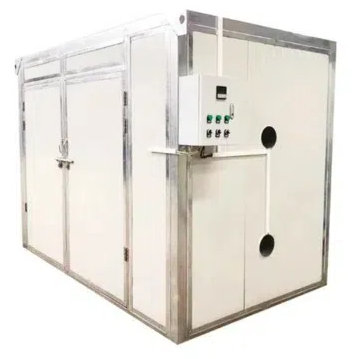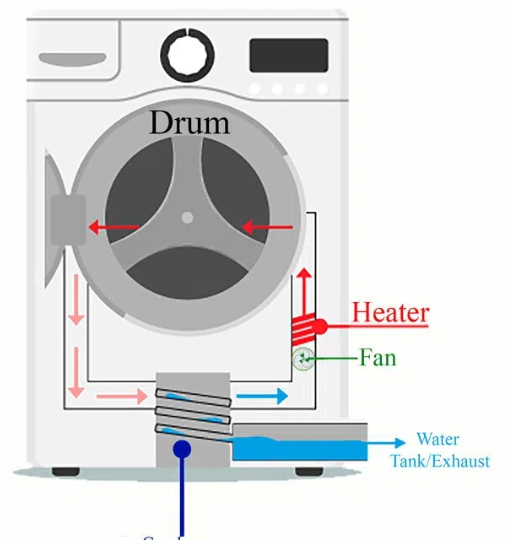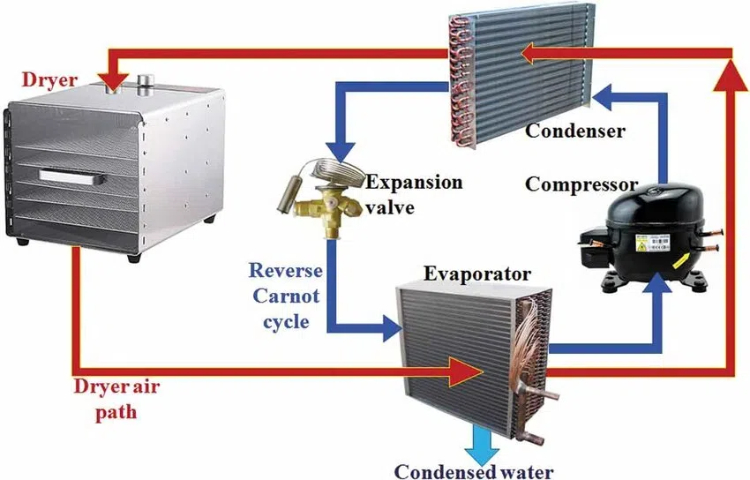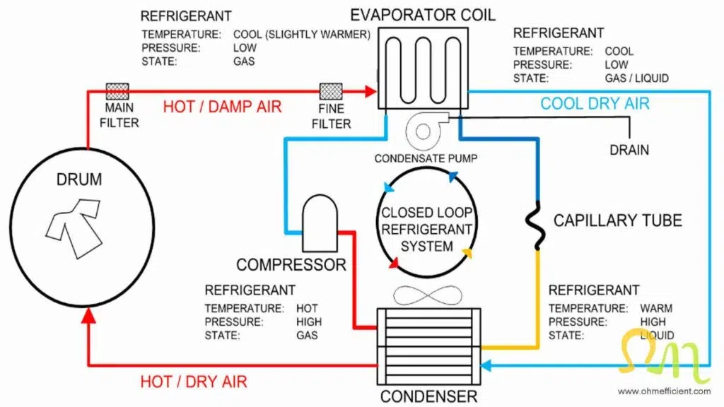
Content Menu
● Introduction
● Understanding Heat Pump Technology
● Energy Efficiency and Environmental Impact
● Advanced Features and Operation
● Installation and Maintenance Requirements
● Cost Considerations and Long-term Savings
● Conclusion
● Frequently Asked Questions
>> 1. Q: How much energy do heat pump dryers save compared to conventional dryers?
>> 2. Q: Do heat pump dryers require special installation?
>> 3. Q: How long do heat pump dryers last?
>> 4. Q: Are heat pump dryers worth the higher initial cost?
>> 5. Q: Do heat pump dryers take longer to dry clothes?
Introduction
Heat pump dryers represent a revolutionary advancement in laundry technology, combining energy efficiency with superior drying performance. These innovative appliances have transformed the way we think about clothes drying, offering a more sustainable and economical solution for modern households. As we delve into the intricate workings of heat pump dryers, we'll explore their technology, benefits, and impact on both energy consumption and clothing care.
Understanding Heat Pump Technology
Heat pump dryers operate on a sophisticated closed-loop system that recycles and reuses hot air, making them fundamentally different from conventional dryers. The technology employs the same principles used in refrigerators and air conditioners, but in reverse. The system consists of four main components: an evaporator, a compressor, a condenser, and an expansion valve. When the drying cycle begins, warm air is circulated through the drum, where it absorbs moisture from the clothes. This moisture-laden air then passes through the evaporator, where it's cooled, causing the water vapor to condense. The dried air is then reheated by the condenser and circulated back into the drum, creating a highly efficient closed-loop system.

Energy Efficiency and Environmental Impact
One of the most compelling aspects of heat pump dryers is their remarkable energy efficiency. Unlike traditional dryers that expel warm air outside, heat pump dryers recycle the heat generated during the drying process. This closed-loop system results in significantly lower energy consumption, typically using 50-60% less electricity than conventional dryers. The reduced energy consumption not only translates to lower utility bills but also contributes to a smaller carbon footprint. Additionally, these dryers operate at lower temperatures, which helps preserve fabric quality and extend the lifespan of clothing items.
Advanced Features and Operation
Modern heat pump dryers come equipped with an array of sophisticated features that enhance their functionality and user experience. These include moisture sensors that automatically adjust drying times, multiple temperature settings for different fabric types, and smart connectivity options that allow remote monitoring and control through mobile devices. The dryers also feature advanced filtration systems that capture lint and debris more effectively than traditional models. Many units offer specialized programs for different types of clothing, from delicate silk garments to heavy bedding, ensuring optimal care for all fabric types.

Installation and Maintenance Requirements
Installing a heat pump dryer requires careful consideration of space and ventilation requirements. Unlike conventional dryers, these units don't need external venting, making them more flexible in terms of placement options. However, they do require adequate space for proper air circulation and regular maintenance to ensure optimal performance. Maintenance tasks include cleaning the condenser and evaporator units, emptying the water collection container, and regularly checking and cleaning the filtration system. Proper maintenance not only ensures efficient operation but also extends the lifespan of the appliance.
Cost Considerations and Long-term Savings
While heat pump dryers typically have a higher initial purchase price compared to traditional dryers, the long-term savings in energy costs often justify the investment. The reduced energy consumption can result in significant savings on utility bills over the life of the appliance. Additionally, many regions offer energy efficiency rebates or incentives for purchasing heat pump dryers, further offsetting the initial cost. When considering the total cost of ownership, including energy savings and potential rebates, heat pump dryers often prove to be the more economical choice in the long run.
Conclusion
Heat pump dryers represent a significant advancement in laundry technology, offering superior energy efficiency, gentle fabric care, and environmental benefits. While the initial investment may be higher, the long-term advantages in terms of energy savings, clothing care, and environmental impact make them an excellent choice for environmentally conscious consumers. As technology continues to evolve, we can expect to see even more innovations in heat pump dryer technology, further improving their performance and efficiency.

Frequently Asked Questions
1. Q: How much energy do heat pump dryers save compared to conventional dryers?
A: Heat pump dryers typically use 50-60% less energy than conventional dryers, resulting in significant savings on energy bills.
2. Q: Do heat pump dryers require special installation?
A: No, heat pump dryers don't require external venting, making them more flexible for installation. However, they do need adequate space for proper air circulation.
3. Q: How long do heat pump dryers last?
A: With proper maintenance, heat pump dryers can last 10-15 years, comparable to or longer than conventional dryers.
4. Q: Are heat pump dryers worth the higher initial cost?
A: Yes, while they cost more upfront, the energy savings and longer lifespan often make them more economical in the long run.
5. Q: Do heat pump dryers take longer to dry clothes?
A: Yes, heat pump dryers typically take longer to dry clothes compared to conventional dryers due to their lower operating temperatures, but this gentler drying process is better for fabric care.












